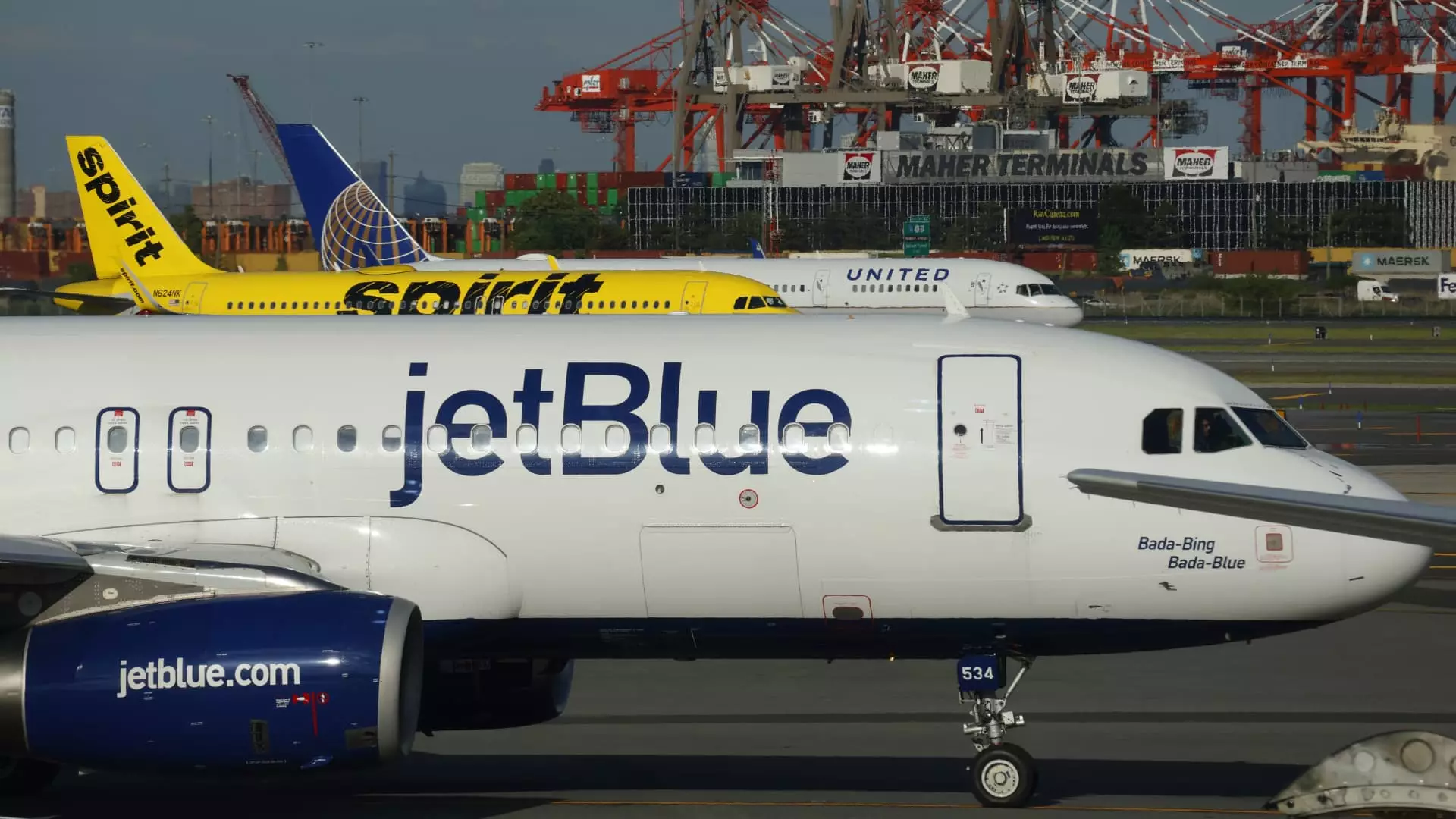In a recent turn of events, airlines that have historically been eager for new aircrafts are now facing financial struggles that are causing them to rethink their growth strategies. Cash-strapped and low-cost airlines such as Spirit Airlines, JetBlue Airways, and Frontier Airlines have all reported losses and are deferring deliveries of new aircraft in an effort to save money and return to profitability. Despite flooding the domestic market with flights this year, these carriers have been hit hard by engine repairs and decreasing revenue. The impact has been substantial, with average fare revenue for some airlines falling by as much as 16%.
Frontier Airlines, for example, has deferred the delivery of 54 Airbus aircraft until at least 2029, citing industry-wide oversupply as a reason for the delay. This move is expected to save the airline billions of dollars in the long run. JetBlue Airways is also taking a similar approach by deferring the delivery of 44 Airbus A321 planes through 2029, with estimated cost savings of around $3 billion. These carriers are prioritizing cost reduction through various initiatives, such as deferrals and discontinuation of unprofitable routes.
In addition to financial constraints, airlines like JetBlue are also grappling with grounded jets due to a Pratt & Whitney engine recall. This has further complicated the situation, as the carriers find themselves in a double-edged sword scenario. While they need new planes to grow their operations, taking delivery of aircraft that are ultimately grounded worsens the financial burden. The high costs associated with purchasing new planes have forced airlines to rethink their expansion plans and focus on operational efficiency.
Boeing and Airbus, the two main suppliers of commercial aircraft, are facing challenges in increasing production due to skilled worker shortages and supply chain disruptions. Despite this, demand for new fuel-efficient planes remains strong, with lease rates hitting record highs in recent months. Both manufacturers are optimistic about the future, with Airbus having over 7,000 unfilled orders for the A320 family and Boeing having nearly 4,200 orders for the 737 Max planes. However, the financial strain on airlines is evident, as many are struggling to meet their growth targets and manage costs effectively.
Airlines like Southwest Airlines have been forced to slow down hiring and growth plans due to delayed deliveries of new planes. Southwest’s CFO mentioned that the company is actively pursuing cost-saving opportunities to mitigate the impact of overstaffing related to Boeing delivery delays. The airline has offered voluntary leave programs to its employees as a way to manage costs during this challenging time. Despite these setbacks, Southwest remains optimistic about its future plans and aims to provide more details during an upcoming investor day.
Overall, the airline industry continues to face significant challenges as carriers navigate the financial fallout of the pandemic. By deferring aircraft deliveries, implementing cost-saving initiatives, and prioritizing operational efficiency, airlines hope to weather the storm and return to profitability in the long run. However, the road ahead remains uncertain, with ongoing supplier challenges and a scarcity mindset prevailing in the industry. It is clear that airlines must adapt to the changing landscape and find innovative ways to overcome financial hurdles in order to thrive in the post-pandemic era.


Leave a Reply